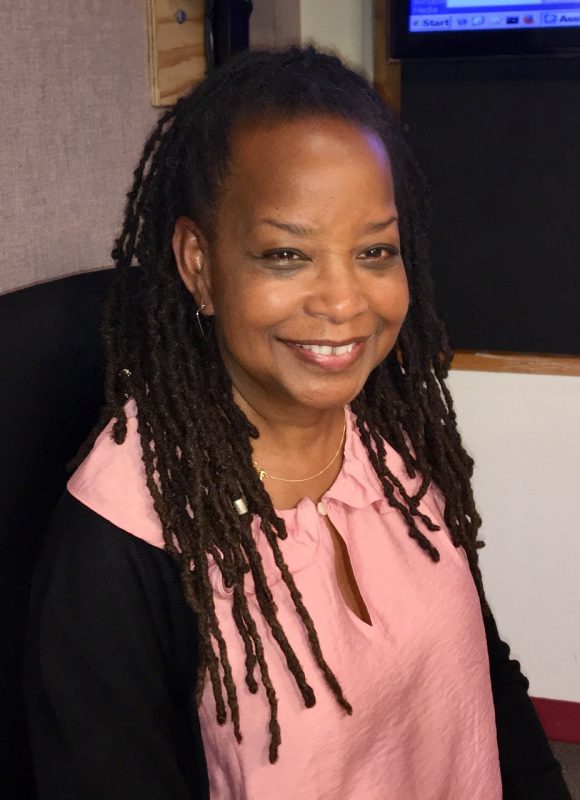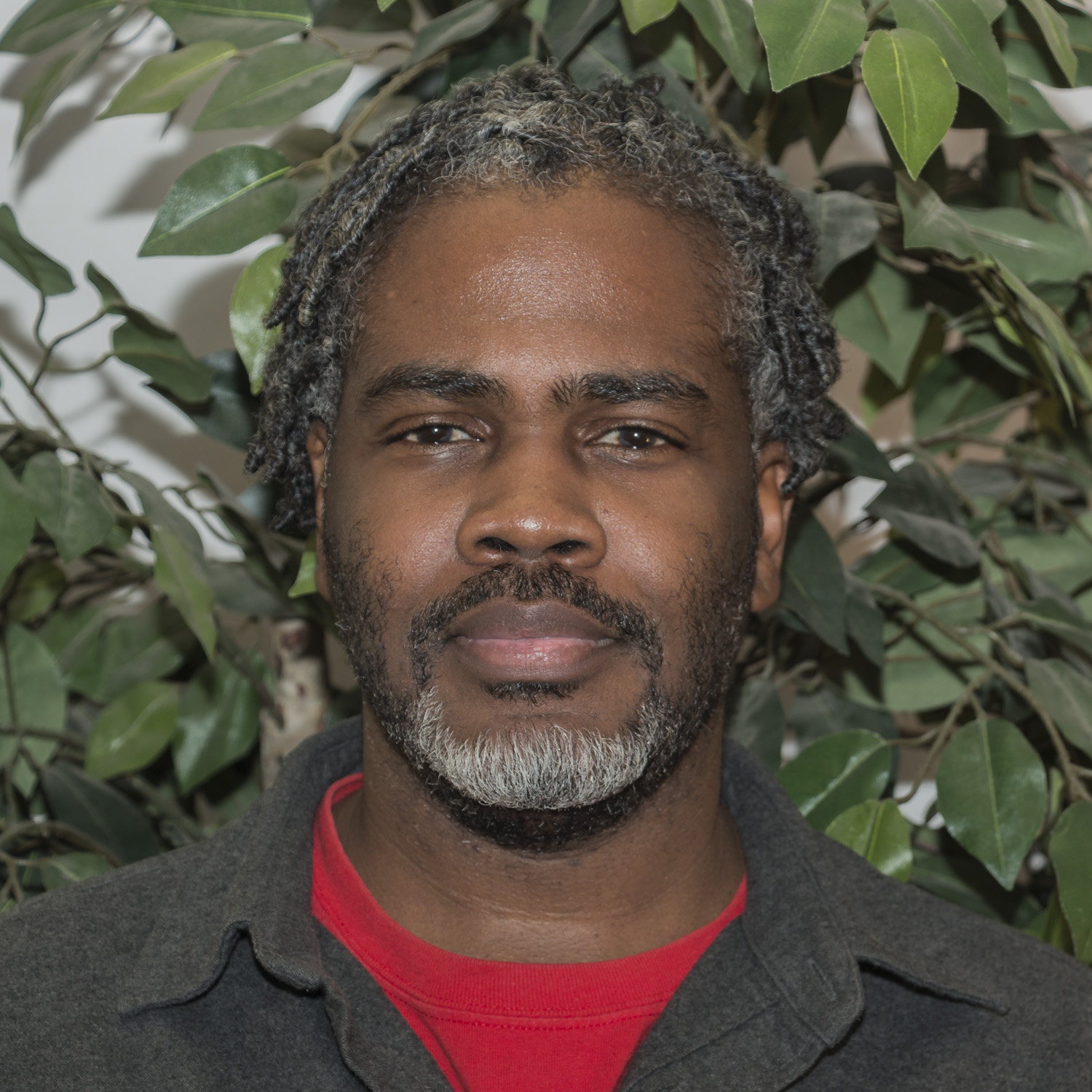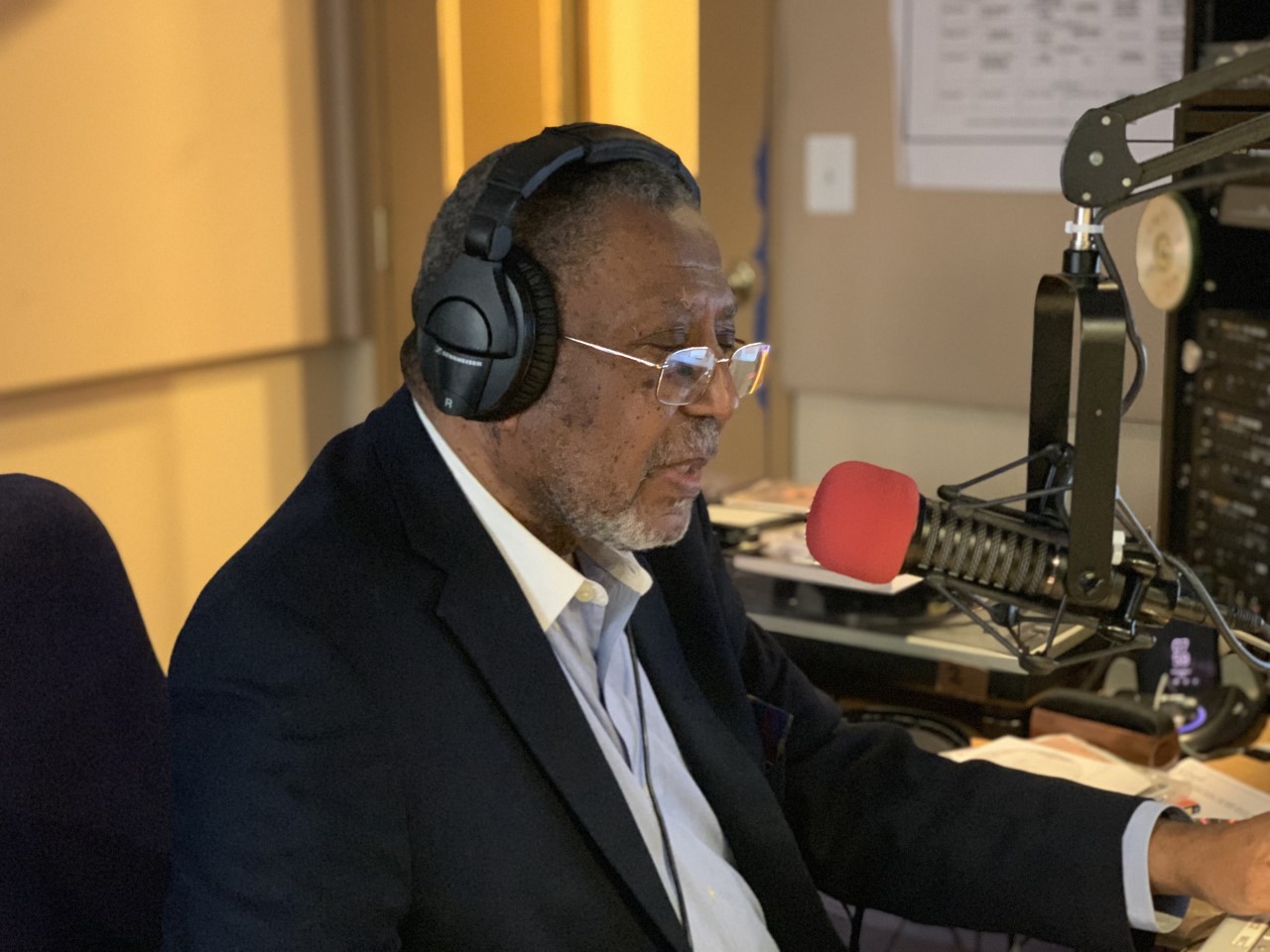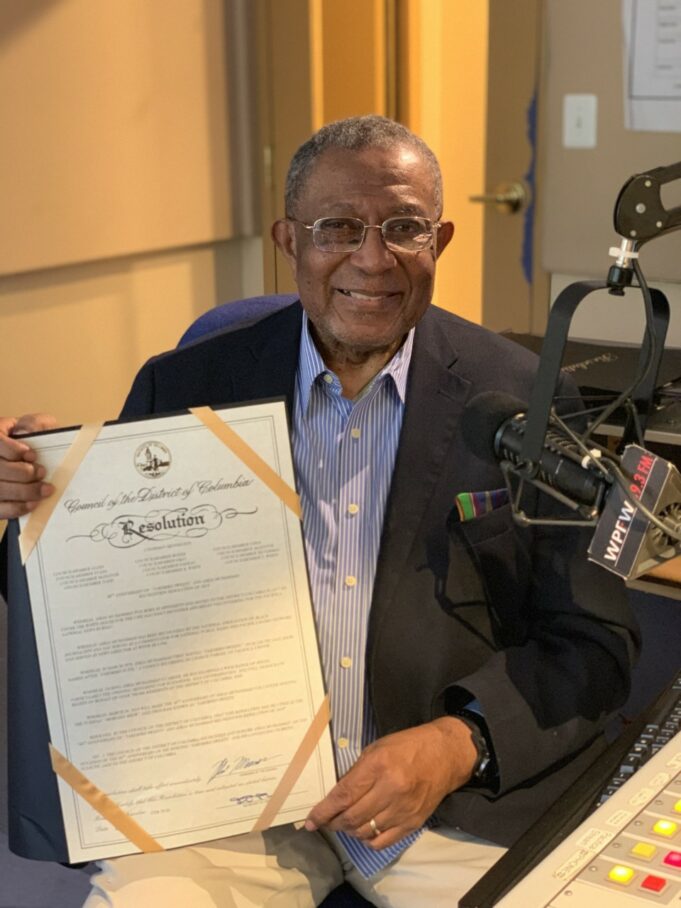The airwaves of WPFW-FM in Washington, D.C., where Askia Muhamad spent 40 years hosting a radio program, reporting and working as longtime news director were a fitting place for a tribute led by David Whettstone, host of “We the People.”
The discussion of the late Black journalist’s work and history was held Feb. 23. Program participants, who knew and worked with Brother Askia, included Denise Rolark Barnes, publisher of the Washington Informer and his weekly column “Askia At Large,” Nefta Freeman, an activist and colleague at WPFW-FM, and Naba’a Muhammad, editor in chief for The Final Call newspaper, where Brother Askia served as dean of the journalistic team, White House correspondent, senior editor and advisor.
Brother Askia was remembered for his principled work, dedication to telling the story of the Black struggle, while offering critiques and analysis of the Black condition. He worked across print and radio to spread information and helped others, like Mr. Whettstone and Mr. Freeman, to develop as broadcasters.

Ms. Rolark Barnes described Brother Askia as a consummate journalist and friend. She enjoyed their lively discussions, found a seat next to him during international travel and engaged in valuable conversations about the world and the District of Columbia.
Brother Askia used his influence “in helping to get the word out and (being) very analytical about what we were doing, sometimes critical, and we need that,” she said. Brother Askia wrote a weekly column for the Informer for some 30 years.
Nefta Freeman was first interviewed by Brother Askia in the 1980s as a young activist with the All-African Peoples Revolutionary Party about African Liberation Day gatherings that drew thousands. He recalled how Brother Askia handled him and other inexperienced young people in interviews at the time, giving them “softball questions” that allowed explanations of African Liberation Day and answers they should have known, he said. The award-winning journalist was an “encouraging elder,” he said.
With Brother Askia’s help and a relationship over the years Mr. Freeman became co-producer and host for WPFW’s “Voices With Vision.” He is also an organizer with Pan-African Community Action and serves on the coordinating committee of Black Alliance for Peace.
Brother Askia told the story of international work and campaigns Mr. Freeman was involved with.

It included coverage of the Nicaragua freedom struggle, the targeting of Cuban activists by the United States and 2016 coverage of the United Nations fact-finding team looking at the human rights conditions of Blacks in the nation’s capital, he said. And, Mr. Freeman added, Brother Askia had just completed work on the then-brewing war between Russia, Ukraine, the United States and NATO.
When you tell the stories of these people, you spread and strengthen the cause for social justice, Mr. Freeman noted. Through Brother Askia these causes would get radio reports on WPFW 89.3 FM and in The Final Call.
Mr. Whettstone spoke of Brother Askia’s devotion to the craft of journalism. Brother Askia was willing to tackle difficult subjects and was deeply connected to the global struggle of Black people, he said.
That connection to global struggle was important as Brother Askia traveled with and documented the World Friendship Tours by the Honorable Minister Louis Farrakhan following the successful Million Man March in 1995. Min. Farrakhan had great respect and love for Askia Muhammad as a brother, a writer, a journalist, a thinker, said Naba’a Muhammad.
So in covering the Minister’s World Friendship Tour in 1996, Brother Askia was there to document and present to the world what the Minister was actually engaged in, he said. The “lame stream media” miscast the Minister’s tour but Brother Askia was able to write and present the truth, said the Final Call newspaper editor in chief.
We can never be free if we rely on the enemy to tell our stories so Askia Muhammad’s work was critical, he added.
Naba’a Muhammad also pointed out the integrity exhibited by Brother Askia, who as a photographer captured the only publicly known photo of Barack Obama, the first Black president, and Min. Farrakhan. The photo was taken in 2005 but held for 12 years until its release in 2017. The photo and the story behind it was told in “The Autobiography of Charles 67X,” which Brother Askia published. As a member of the Nation of Islam and the first Muslim editor of the Muhammad Speaks newspaper published by the Hon. Elijah Muhammad, he was known as Charles 67X before having the name Askia Muhammad.

The desire in 2008 and afterward was to malign and destroy Mr. Obama with questions about his citizenship, forcing him to denounce the Rev. Jeremiah Wright, who had been a kind of spiritual father for the Chicago politician, and Father Michael Pfleger, an outspoken Roman Catholic priest and advocate for Blacks in Chicago. Both men had criticized America for her evil and warned that she needed to change for the better.
But Obama’s enemies tried to use the connections to derail his White House bid. Mr. Obama was accused of being a secret Muslim and during the presidential primary Sen. Hillary Rodham Clinton forced Mr. Obama to denounce and repudiate even a good thought Min. Farrakhan may have had about him.
“If that photo had come out, you would never have had a Black president,” declared Naba’a Muhammad. So that photo must always be connected with Askia Muhammad and seen as an example of who he was, added the Chicago-based journalist.
Brother Askia made his transition to Allah (God) Feb. 17. He died of natural causes. He was 76 years old.
“I feel the loss of a brother, the loss of a friend, the loss of a student in the classroom of God that he translated into a work project that stimulated the level of consciousness to everyone who read his writings,” Minister Farrakhan told The Final Call.
“I (personally) feel his loss as a member of a family would feel because he was part of a family, a family he came into as a young man and used his skill as a writer and thinker to help as many as he could, to influence as many as he could to live a better life of progress and productivity that his loss manifested.
“He will be greatly missed,” the Minister said.
Born Charles K. Moreland, Jr., in 1947 in Yazoo, Mississippi, Brother Askia attended college at San Jose State University. He later joined the Navy’s Officer Candidate School before leaving to join Newsweek magazine as an intern in 1968. He never returned to the Navy. He would go on to join the Nation of Islam and received his “X” in 1969.

During his early years with the Nation, Brother Askia returned to journalism, writing for the Muhammad Speaks and becoming its first Muslim editor. When the Nation fell, Brother Askia continued to write for Black newspapers and the Chicago Defender sent him to Washington, D.C., to cover politics after the election of President Jimmy Carter.
When Minister Farrakhan resurrected the teachings of the Honorable Elijah Muhammad and started The Final Call newspaper, Brother Askia became one of its first editors. As The Final Call grew, he became chief of the Washington bureau, White House correspondent and senior editor.
He won numerous awards and merits of recognition. In addition to his news broadcasting, Brother Askia was popular as host of a morning jazz program called “Yardbird Sweets” on WPFW-FM.
Askia Muhammad’s articles have appeared in major daily newspapers and his radio reporting was featured on National Public Radio and the Tavis Smiley Show among other outlets. He was a member of The Trotter Group, which was composed of Black columnists.
Askia Muhammad is survived by his wife Alverda Ann Muhammad and other family members. A private funeral is planned to be followed by a public memorial at a future date.
—Final Call staff













